History of the euro cup
The Euro Cup also called the European Championship, is a big football tournament for national teams in Europe.
A French football official named Henri Delaunay had the idea for the Euro Cup in 1927.
The first tournament only had 4 teams: France, Yugoslavia, Czechoslovakia, and the Soviet Union. The Soviet Union won that first competition.
The big Euro Cup football tournament draws millions each year, making it super famous. It provides us with Football magic every four years! The competition has contributed significantly to the role of development of European football culture throughout its history by producing several memorable moments, famous players, and unforgettable matches.
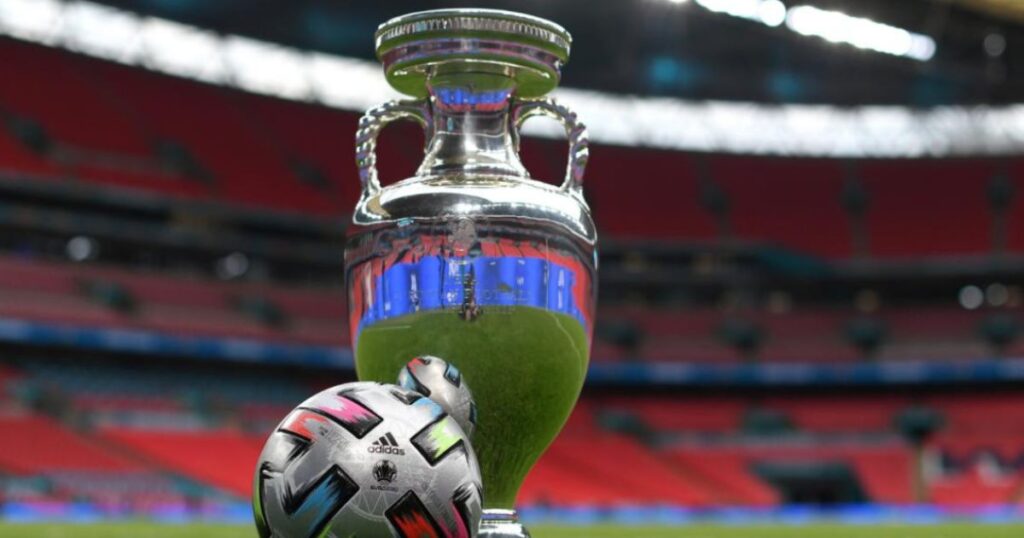
From Four Teams to Twenty-Four: The Evolution of the Euro Cup Format
The Euro Cup has come a long way since its first whistle in 1960. Here’s the lowdown:
- Started small: Only 4 teams played in the first tournament. Now, 24 teams battle it out!
- New homes: Different countries across Europe get to host the Euro Cup, bringing excitement to everyone.
- Tweaks and upgrades: The competition has develop, with changes to how teams qualify, how many make it to the final rounds, and even the tournament’s name!
These changes have made tournament football bigger, and better, for fans and players
The Most Successful Teams in the Euro Cup
The Cup has seen many champions rise and shine, but some teams have truly dominated:
Germany: The powerhouse of Europe, Germany holds the record with 3 titles (1972, 1980, 1996) and 3 runner-up finishes.
Spain: Not far behind are the Spanish giants, also boasting 3 championships (1964, 2008, 2012) and 1 runner-up spot.
France: France holds its ground with 2 titles (1984, 2000) and 1 runner-up appearance, making them a consistent contender.
Other Champions:
Soviet Union: Winners in 1960, reaching the final twice more.
Italy: Champions in 1968 and 2020, with 2 runner-up finishes.
Denmark: Victorious in 1992, showcasing their underdog spirit.
Netherlands: Van Basten’s legendary goal secured their 1988 win.
Czechoslovakia: Champions in 1976 and finalists in 1960.
Remember, this is just the tip of the iceberg! Each team has contributed incredible players and moments to Euro Cup history.
Check out our related article
Euro Cup 2024: Dive into Excitement with Dates, Fixtures, and Thrills
Exploring the Excitement: FIFA World Cup 2026 in North America
List Euro Cup winners
2020:
- Host: Azerbaijan, Denmark, England, Germany, Hungary, Italy, Netherlands, Romania, Russia, Scotland, Spain (11 countries)
- Winners: Italy
- Runners-up: England
2016:
- Host: France
- Winners: Portugal
- Runners-up: France
2012:
- Host: Ukraine / Poland
- Winners: Spain
- Runners-up: Italy
2008:
- Host: Austria / Switzerland
- Winners: Spain
- Runners-up: Germany
2004:
- Host: Portugal
- Winners: Greece
- Runners-up: Portugal
2000:
- Host: Belgium / Netherlands
- Winners: France
- Runners-up: Italy
1996:
- Host: England
- Winners: Germany
- Runners-up: Czech Republic
1992:
- Host: Sweden
- Winners: Denmark
- Runners-up: Germany
1988:
- Host: Germany
- Winners: Netherlands
- Runners-up: Soviet Union
1984:
- Host: France
- Winners: France
- Runners-up: Spain
1980:
- Host: Italy
- Winners: Germany
- Runners-up: Belgium
1976:
- Host: Yugoslavia
- Winners: Czechoslovakia
- Runners-up: Germany
1972:
- Host: Belgium
- Winners: Germany
- Runners-up: Soviet Union
1968:
- Host: Italy
- Winners: Italy
- Runners-up: Yugoslavia
1964:
- Host: Spain
- Winners: Spain
- Runners-up: Soviet Union
1960:
- Host: France
- Winners: Soviet Union
- Runners-up: Yugoslavia
Watch the video
The Role of National Identity in the Euro Cup: A Cultural Perspective
The Euro Cup isn’t just about goals and glory; it’s about national pride! Here’s how it plays out:
Showcasing National Spirit:
Countries use the tournament to show their unique cultures and values. Fans wear flags, sing anthems, and celebrate their heritage with passion.
It’s a party of diversity, bringing people together regardless of background.
National Identity Boost:
Winning the Euro Cup can be a huge morale booster for a country, uniting people and creating a sense of purpose.
Conversely, poor performance can affect national pride, but it also sparkle discussions and pushes teams to improve.
The Most Memorable Moments in Euro Cup History: From Upsets to Classics
The Euro Cup isn’t just about trophies, it’s about creating unforgettable moments. Here are some that still have fans buzzing:
Greece’s Story (2004): Nobody expected Greece to win, yet they stunned everyone by beating Portugal in the final! Talk about an underdog coming out on top!
Golden Goal Drama (2000): France vs. Italy was a nail-biter that ended in a tie. Then, David Trezeguet scored a golden goal in extra time, sending France into a frenzy!
Van Basten’s Volley (1988): This goal is legendary! An impossible angle, perfect execution – Marco van Basten’s volley against the Soviet Union is etched in history.
Ronaldo’s Redemption (2016): Injured early in the final, Cristiano Ronaldo watched from the sidelines as Portugal won. His tears of joy, finally achieving his Cup dream, were a powerful moment.
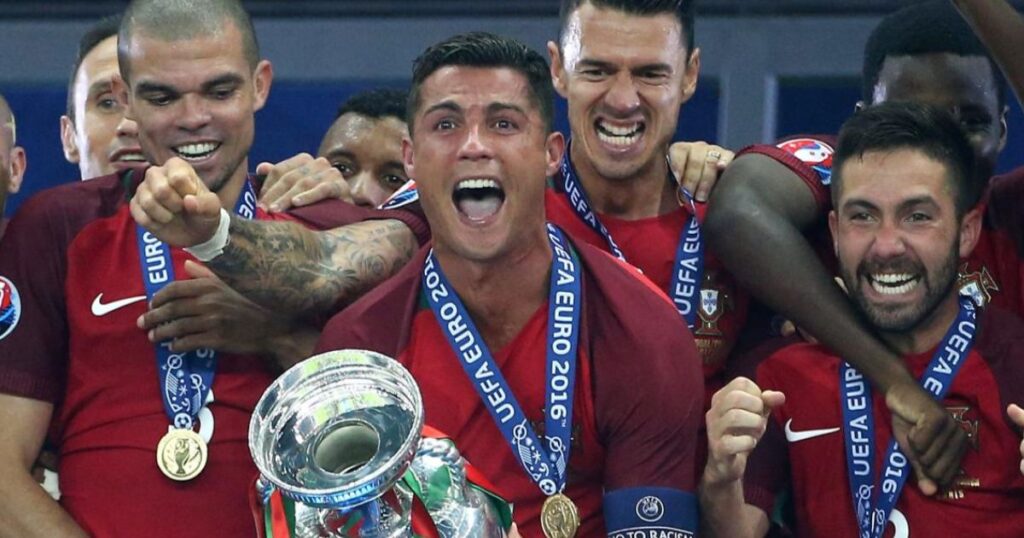
The Impact of the Euro Cup on European Football and Society
The Cup had a significant impact on European football and society over the years. Some of the reasons why the tournament has influenced both:
Boosts Football: Spotlights amazing players, inspires young talent, and unlocks investment in future stars!
Economic Boom: Brings jobs, tourism, and cash to host countries, making everyone celebrate!
Cultural Exchange: Fans unite, sharing traditions and appreciating Europe’s rich diversity.
Social Unity: Football unites people, building bridges and strengthening national pride.
The Cup scores both on and off the field, making it more than just a game, it’s a celebration of Europe!
The Fans’ Experience: Celebrating Diversity and Unity in the Euro Cup
The Euro Cup isn’t just about who wins, it’s a party for all! Here’s how it unites people:
Fans United: People from all over Europe, with different backgrounds and beliefs, come together to cheer for their teams, creating a giant international fan club!
Culture Swap: Dive into different cultures! Fans get to try new foods, explore cool places, and learn about the host country’s history.
Love for All: No matter your race, religion, or gender, the Euro Cup promotes respect and acceptance. Everyone’s welcome!
Fan Fests: Big screens, music, and activities bring fans together to celebrate and have a blast!
Volunteer Power: Want to get involved? Volunteering lets you meet new people, contribute to the event, and gain experience.
It celebrates unity and diversity among fans and promotes cultural exchange.
Role on the global football stage
The Euro Cup isn’t just another tournament, it’s a huge deal for football fans around the world! Here’s why:
Top-Tier Talent: Watch the best of the best! The Euro Cup features Europe’s strongest teams and most skilled players, showcasing amazing football.
Millions Watching: Football fans worldwide tune in to witness the excitement. It’s a massive platform for players and teams to shine!
Boost for Clubs: Players use the Euro Cup to impress bigger clubs, potentially leading to exciting transfers and new talent discoveries.
Global Game: The game reflects have worldwide reach, with players from all over the world participating.
Fierce Rivalries: England vs. Germany, Spain vs. Portugal – these classic rivalries make matches even more thrilling!
It is a big stage for top players, thrilling rivalries, and football fans united worldwide!
The Euro Cup and Its Economic Impact: From Host Countries to Sponsors
The Cup isn’t just exciting for fans, it’s a cash cow for host countries and sponsors:
Tourism Boom: Fans flock to cheer on their teams, filling hotels, restaurants, and shops, boosting the local economy.
Infrastructure Upgrade: New stadiums, transport networks, and facilities get built, benefiting locals long after the tournament.
Jobs Galore: From hospitality to marketing, the Euro Cup creates tons of temporary and permanent jobs.
Sponsorship Goldmine: Big brands pay big bucks to advertise alongside the best European football.
Media Millions: TV channels pay big bucks to broadcast the matches, bringing more money to organizers.
So, the Euro Cup isn’t just a football tournament, it’s an economic powerhouse!
The Future of the Euro Cup: Innovation, Expansion, and Challenges
It has always seen changes, and the future promises even more! Here’s what’s brewing:
Growing Bigger? Currently, 24 teams, 32 might join in, offering more matches but sparking worries about quality and player collapse.
Tech Takeover: Expect more VAR (video referees) and even newer tech like goal-line checks and player tracking.
Going Green: The Euro Cup wants to be eco-friendly, using less energy and promoting sustainable practices.
Global Stage? Hosting matches outside Europe is being discussed, but not everyone’s cheering for it.
Facing Challenges: From pandemics to commercialization concerns, the Euro Cup has barrier to overcome, especially for smaller nations.
The Euro Cup is expected to continue evolving in the future, with new changes to the format, technology, sustainability, and globalization. The tournament also faces problems and challenges to continued success and connection in the world of football.
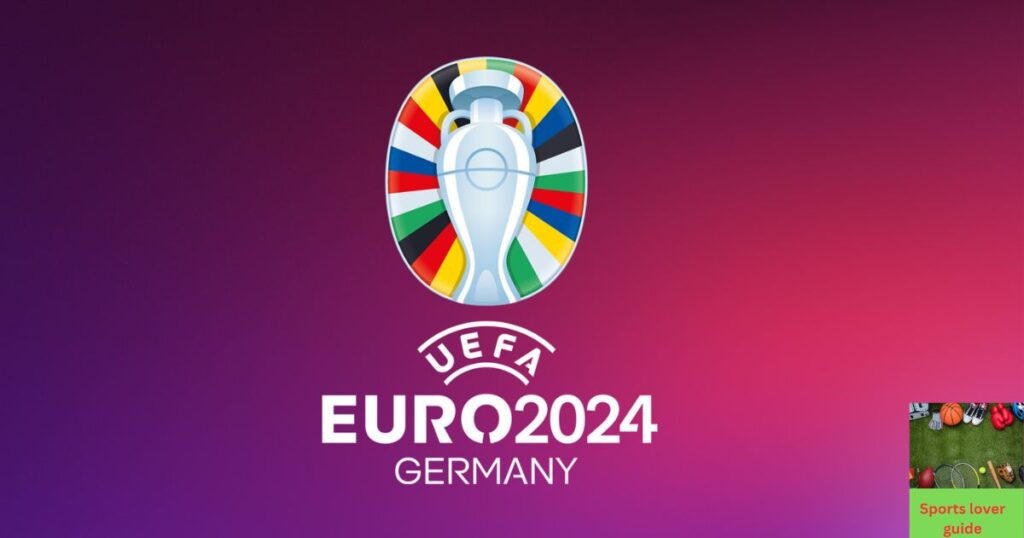
Here are some frequently asked questions about the Euro Cup
1)What is the Euro Cup?
Ans It is a football tournament that takes place in Europe every four years and features all national teams from Europe.
2)When did the Euro Cup start?
Ans The first Euro Cup was first held in the year 1960.
3) How many teams participate in the Euro Cup?
Ans Since 2016, the Euro Cup has featured 24 teams.
4)Who has won the most Euro Cups?
Ans Germany and Spain both won three Cups.
5)Who is the Euro Cup champion in 2020?
Ans Italy beat England and won the Cup in 2020.
6)Where is the next Euro Cup going to be held?
Ans The next Cup is scheduled to take place in 2024 and will be hosted by Germany.
7)How long does the Euro Cup last?
Ans The Cup runs for around a month, with the group stage matches, knockout rounds matches, and final taking place during this time.
8) Where will the Euro 2024 games be played?
Ans UEFA EURO 2024 will be held in Germany, spanning ten world-class stadiums from Berlin Olympiastadion to Hamburg’s Volksparkstadion.
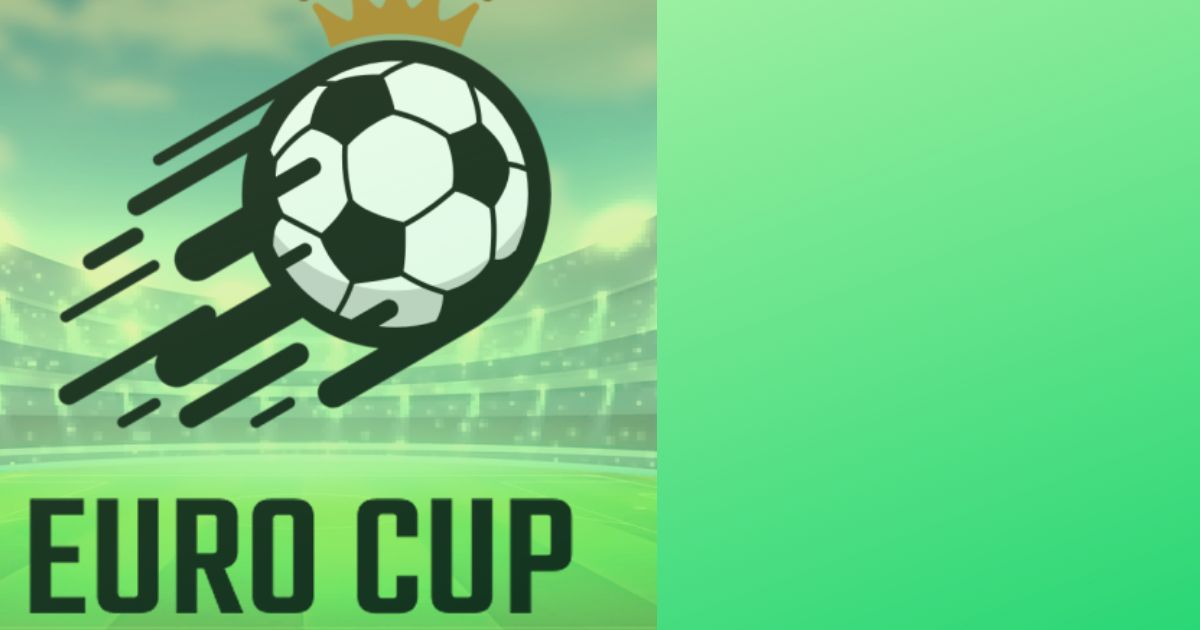
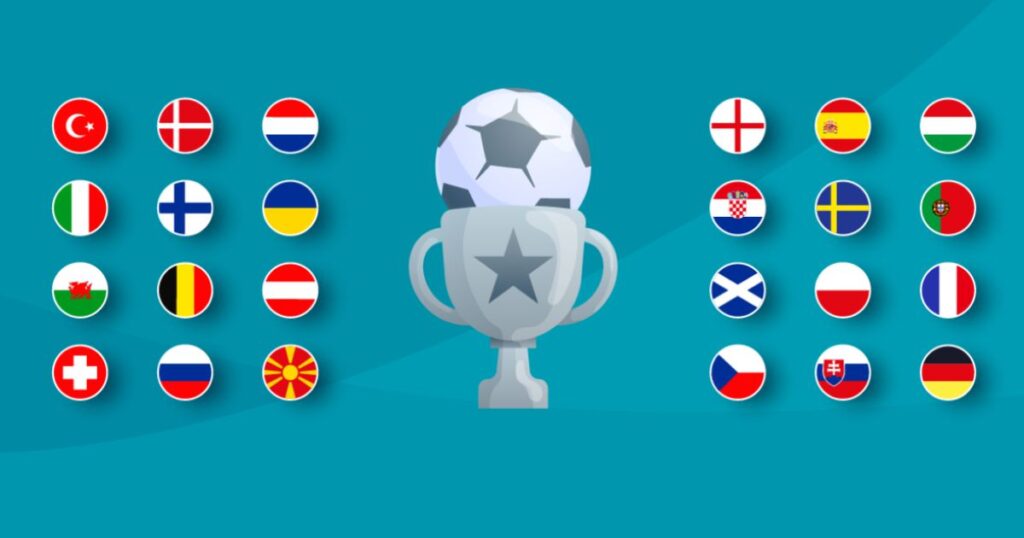
2 thoughts on “The Evolution and Impact of the Euro Cup: A Comprehensive History and Analysis”